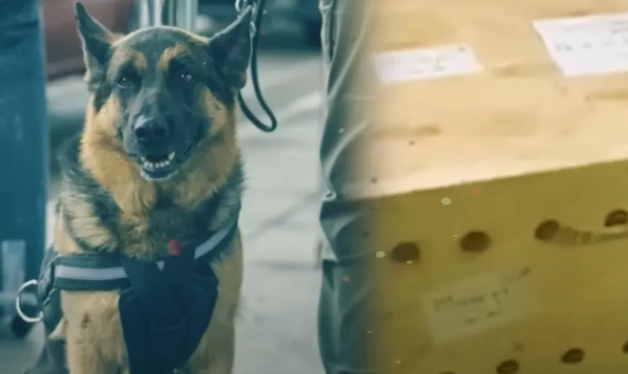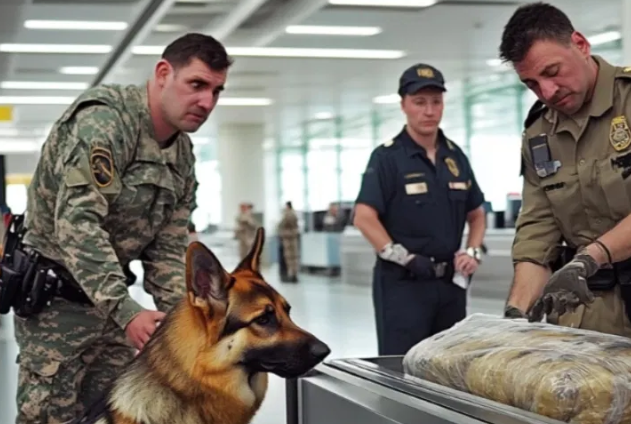Beirut’s Rafic Hariri International Airport, Lebanon’s only passenger and cargo hub, is constantly bustling with travelers and shipments.
With thousands of people and large volumes of goods moving daily, safety and security are always top priorities.
To maintain order, the airport employs many law enforcement officers. But among the most effective—yet often overlooked—members of the security team are the specially trained detection dogs.
These highly intelligent canines are trained to identify illegal or dangerous substances like drugs, explosives, and undeclared cash. They’re taught to detect suspicious scents and alert their handlers silently, without barking or causing alarm.
When one of these dogs senses something unusual, it simply stops and stares at the source, signaling its handler to investigate.
One day, during a routine patrol inside the cargo terminal, a trained search dog was making its rounds.
Although these dogs are calm and friendly, it’s strictly prohibited to pet them while they’re working.
As the dog and its handler walked past a stack of packages, the dog suddenly stopped in front of a box marked as arriving from Kazakhstan. The package had been sitting at the airport for a few days, waiting to be forwarded.
The dog froze, staring intently at the box.
This behavior immediately caught the officer’s attention—these dogs rarely make mistakes. Trusting his partner’s instincts, the handler let the dog move closer.
Then, the dog jumped up onto the box, tail wagging, clearly agitated and whining for attention.
At first glance, the box appeared ordinary. But the officer noticed tiny holes along the sides—possibly for ventilation.
Concerned, he called for a more thorough inspection.
Airport staff gathered around as the box was carefully moved to a secure area. Fearing the possibility of explosives, the bomb squad was summoned—even though the package had already passed several checks. Safety protocols required full evacuation of the area.
Curiously, the detection dog kept trying to return to the box, behavior that even puzzled the seasoned handler.

When the bomb squad confirmed there was no threat, authorities opened the box cautiously.
What they found was completely unexpected.
Inside, lying in urine-soaked, foul-smelling sawdust, were two small tiger cubs—filthy, frightened, and weak. Their fur was matted, and insects were crawling inside the box.
The cubs were severely dehydrated and malnourished, having likely spent days without proper food, water, or ventilation.
Veterinarians and animal rescue teams were called immediately. The cubs, a male and a female later named Tobby and Sophie, were taken to a specialized animal care center.
At first, their chances of survival seemed uncertain. But with proper care, they gradually recovered—and thankfully, they were not separated.
Further investigation revealed the cubs had been illegally sold from a zoo in Kazakhstan. They were part of a litter of five, though the location of the other three remains unknown.
The zoo’s director was arrested and later sentenced to a lengthy prison term for his role in the smuggling operation.
While exotic animal trafficking remains a serious global issue, this particular story had a hopeful ending—thanks to the unwavering instincts of a dedicated service dog who didn’t just uncover contraband, but saved two innocent lives.







